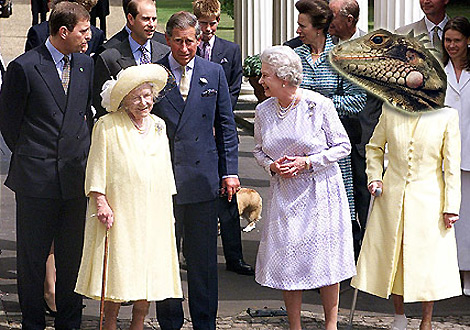
爱丁堡公爵(Duke of Edinburgh,英国女王的丈夫——译者注)一直把英国王室称为"公司",因此,对于一些旨在令王室年俸(Civil List)具有某种跟业绩挂钩性质的举动,我们或许不应感到惊奇。这种做法想必不过是一种良好的商业行为。王室年俸是王室的收入来源之一,由纳税人支付,供王室履行法定职责。
长期以来,王室年俸是一个争议很大的话题。共和政体的拥护者对此尤为不满,他们反对由纳税人出资、供王室维持奢侈的生活方式。一向对民意变幻莫测的风向十分敏感的英国女王,一段时间以来已经在不断缩减年俸的名目和金额。但与此同时,女王和威尔士亲王(Prince of Wales)至今依然可以免于缴纳继承税,并且根据福布斯(Forbes)的估计,他们目前的身家已达到约3亿英镑。他们还有享有其它一些特权,比如说,预订餐厅的时候通常毫不费力。
根据这项计划,一个新基金将取代已有250年历史的王室年俸。该基金将从英国皇家财产局(Crown Estate)的收入中按一定比例抽取。该局管理着总值66亿英镑的房产和土地。王室财产创造的收入越多,王室可能获得的俸金也就越多。
在最初阶段,王室将获得皇家财产局收入的15%,此前这些收入全部归政府所有。考虑到对冲基金的平均费率是2%的管理费和20%的利润,这对于英国王室是笔非常不错的交易。
不过,出于显而易见的理由,英国首相和大臣们希望颁布一些限制条款,并规定王室收入的上限。王室拥有从英国海岸线向外延伸12海里的全部海床——这是令许多海上风电场垂涎三尺的区域。没有人希望王室受利益驱使,用一架架风车填满海岸线。
每年,包括首相和财政大臣在内的王室受托人会组成一个酬劳委员会,决定王室家庭需要多少经费,并将多余收入中的一部分存入一项应急基金,为不好的年景做准备。
然而,这种限制只能是暂时的。一旦王室家庭尝到分红文化的甜头,它就会想要摆脱这种不公平的交易限制。
在伦敦,金融城银行家们获得的巨额分红,严重推高了地产价格。但幸运的是,王室在居住方面被照顾的很好。尽管在最近一轮费用削减中,女王失去了心爱的王室游艇(royal yacht),但她完全可以用一部分余钱购买一艘新游艇。伯尼•麦道夫(Bernie Madoff)的那艘似乎就还没有被买走。
王室在旅游业和周边产品产业为英国带来的收益常常得到大肆宣传。然而,一旦摆脱对政府资助的依赖,获得解放的王室也许能够创造更加令人瞩目的利润。
新利润流可能产生,而王室财产的租户必定会更加坐立难安。随着收入的增加,或许还会带来新的战略机会。不过,王室可能会希望打破政府设置的种种限制——如果他们的首席财务官聪明的话,大概会建议他们将未来的收入债券化。
基金的限制解除后,王室大概会希望扩充资产,或许会以英国另一个大地主——教会为目标进行大手笔的扩张。毕竟,这种事是有先例的(指英格兰宗教改革中王室没收教产——译者注)。
王室可能也会学习英国一些领先企业的做法,剥离表现不佳的王室成员,成立一家新公司,独立于母公司,自筹资金。
与其他王室家庭合并的好处早已确认无疑,这种合并常常可能创造令人兴奋的增效作用。然而,一项精心调校过的激励计划也许会开启一波新的王室合并浪潮。即便是恶意收购,我们也不应将它排除在外。如今英国的陆海空三军或许已经没什么价值了,但对付摩纳哥应该还是没问题的。
当然,英国王室自己也可能成为收购的目标,特别是在应急基金出现巨大现金余额时。因此,王室或许应该用这些钱来创造效益。希腊主权债务或许很快会在"王室的批准"下出售。
这种战略自然存在一些风险,因此我们可能需要进行谨慎的监管。另一场由纳税人埋单的纾困是所有人都不愿意看到的……而英国王室是具有系统重要性的一个机构。我们甚至可以说:英国王室"太大,因而不能倒闭"。
译者/吴蔚
http://www.ftchinese.com/story/001039460

The Duke of Edinburgh has long referred to the British royal family as "the Firm", so perhaps we should not be surprised by moves to build an element of performance-related pay into the Civil List – the income the monarchy is paid by the taxpayer to fund its official duties. It is surely nothing more than good business practice.
The Civil List has long been a contentious issue, not least for republicans, who object to taxpayer funds going to fund a lavish royal lifestyle. Sensitive, as ever to the fickle wind of public opinion, the Queen has been scaling back the scope of the list for some time. On the other hand the Queen and Prince of Wales remain exempt from inheritance tax and enjoy a personal fortune estimated by Forbes at around £300m. There are other perks too; they rarely struggle to get a restaurant reservation, for example.
Under the plan, the 250-year-old Civil List will be replaced by a new fund drawn as a percentage of revenue of the Crown Estate – £6.6bn worth of property and land. The more money the estate generates, the higher their potential remuneration.
Initially the payment will be set at 15 per cent of returns generated for the government by the Estate, which is a pretty good deal for the country when one considers that the average hedge fund charges 2 and 20.
But one can see the reason ministers wish to see limits and certain caps are being put in place. The Crown owns the first 12 nautical miles of all the seabeds that surround Britain – zones badly wanted for offshore wind farms. No one wants to incentivise the royals to litter the coastline with windmills.
Each year the royal trustees, who include the prime minister and chancellor of the exchequer, will turn themselves into a remuneration committee determining how much of this grant the family requires, with a portion of any excess being put into a contingency fund for bad years.
But surely such limits can only be temporary. Once the royal family gets a taste for the bonus culture it will want to shrug off such unfair constraints on trade.
In London the impact of huge City bonuses has seriously inflated property prices but fortunately the royals are well catered for in this department. The Queen did, however, lose her beloved royal yacht in a recent round of cost-cutting so she may well divert some of her extra funds into a new one. Bernie Madoff's is apparently still on the market.
Much is often made of the revenue the monarchy delivers to Britain in terms of tourism and accompanying tat. But freed from the teat of state support, an unshackled monarchy might deliver stellar returns.
New profit streams might be opened and the estate's tenants could certainly find themselves sweated a little more. As the income rises, new strategic opportunities might open up. The Crown might wish to consider breaking free of the government limits however – a smart chief financial officer might recommend a securitisation against future income.
With the funds released the Crown might wish to expand its property holdings – perhaps with an aggressive move on the nation's other large landlord, the Church. There is, after all, precedent for this.
They may follow the path of leading British firms by spinning off the underperforming royals into a new business, listed separately from the parent company.
The benefits of mergers with other Royal Households – often with exciting possibility for synergies – is well established. But a carefully calibrated incentive scheme might kick-start a new wave of consolidation in this sphere. Even hostile takeovers should not be ruled out. Britain's armed forces may not be good for much these days, but they could probably handle Monaco.
Of course, they could become a takeover target themselves, especially if they leave large cash balances in their contingency fund, so the Crown might wish to deploy these in a quest for yield. Greek sovereign bonds might soon be sold "by royal approval".
Naturally there are risks to such a strategy, so prudent regulation may be required. No one wants to see another taxpayer-funded bail-out . . . and the British monarchy is a systemically important institution. One might even describe it as too big to fail.
没有评论:
发表评论